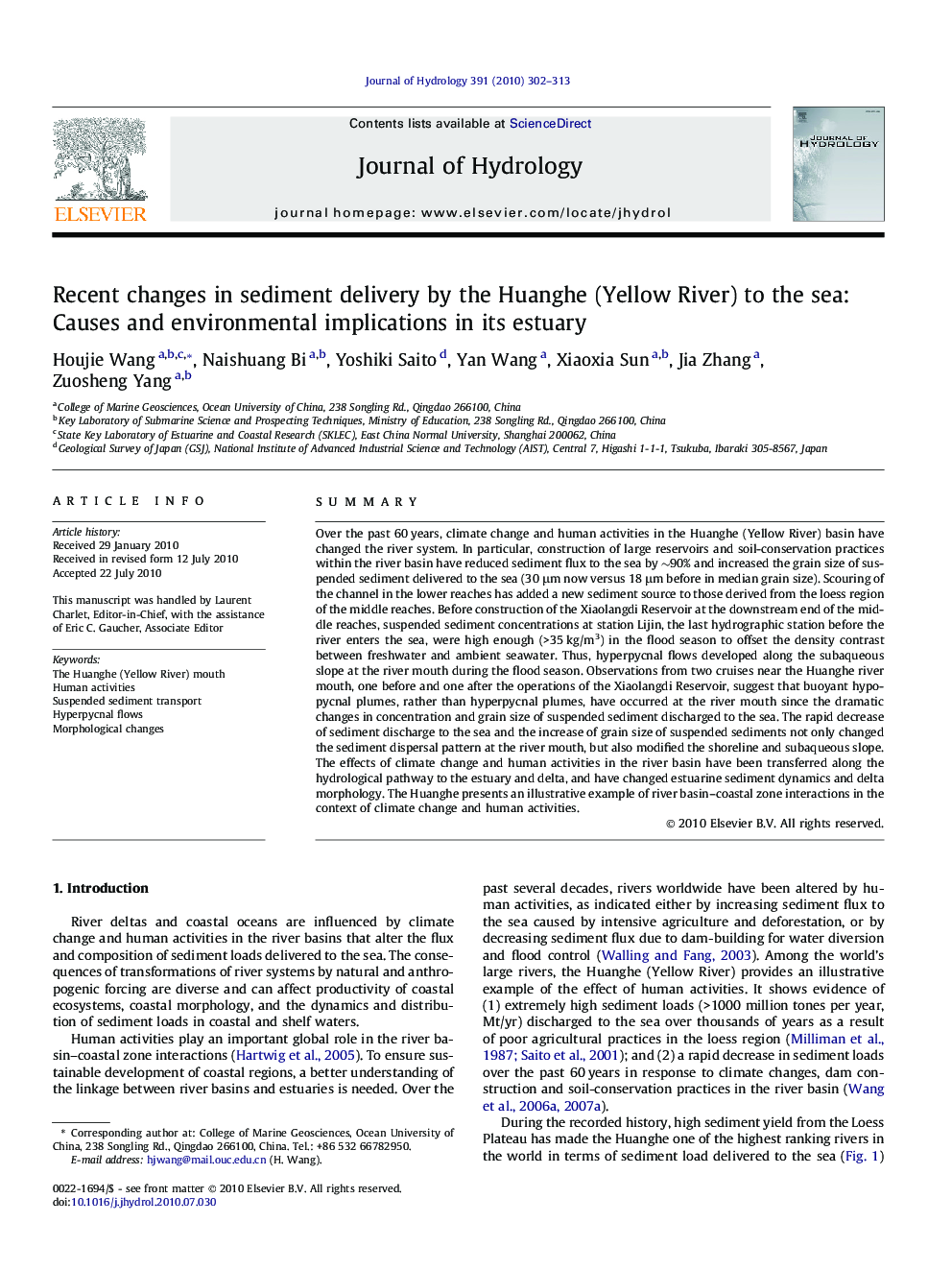| کد مقاله | کد نشریه | سال انتشار | مقاله انگلیسی | نسخه تمام متن |
|---|---|---|---|---|
| 4578084 | 1630045 | 2010 | 12 صفحه PDF | دانلود رایگان |

SummaryOver the past 60 years, climate change and human activities in the Huanghe (Yellow River) basin have changed the river system. In particular, construction of large reservoirs and soil-conservation practices within the river basin have reduced sediment flux to the sea by ∼90% and increased the grain size of suspended sediment delivered to the sea (30 μm now versus 18 μm before in median grain size). Scouring of the channel in the lower reaches has added a new sediment source to those derived from the loess region of the middle reaches. Before construction of the Xiaolangdi Reservoir at the downstream end of the middle reaches, suspended sediment concentrations at station Lijin, the last hydrographic station before the river enters the sea, were high enough (>35 kg/m3) in the flood season to offset the density contrast between freshwater and ambient seawater. Thus, hyperpycnal flows developed along the subaqueous slope at the river mouth during the flood season. Observations from two cruises near the Huanghe river mouth, one before and one after the operations of the Xiaolangdi Reservoir, suggest that buoyant hypopycnal plumes, rather than hyperpycnal plumes, have occurred at the river mouth since the dramatic changes in concentration and grain size of suspended sediment discharged to the sea. The rapid decrease of sediment discharge to the sea and the increase of grain size of suspended sediments not only changed the sediment dispersal pattern at the river mouth, but also modified the shoreline and subaqueous slope. The effects of climate change and human activities in the river basin have been transferred along the hydrological pathway to the estuary and delta, and have changed estuarine sediment dynamics and delta morphology. The Huanghe presents an illustrative example of river basin–coastal zone interactions in the context of climate change and human activities.
Journal: Journal of Hydrology - Volume 391, Issues 3–4, 24 September 2010, Pages 302–313